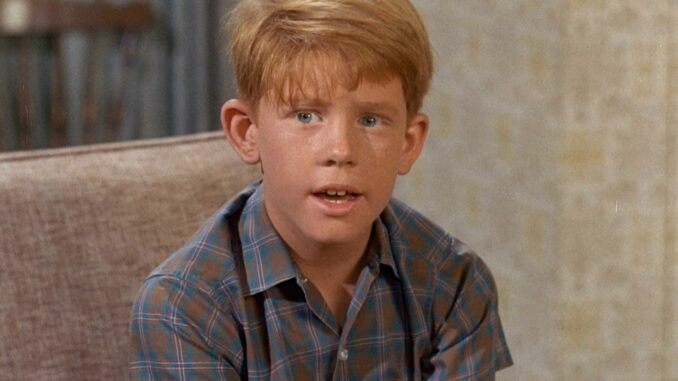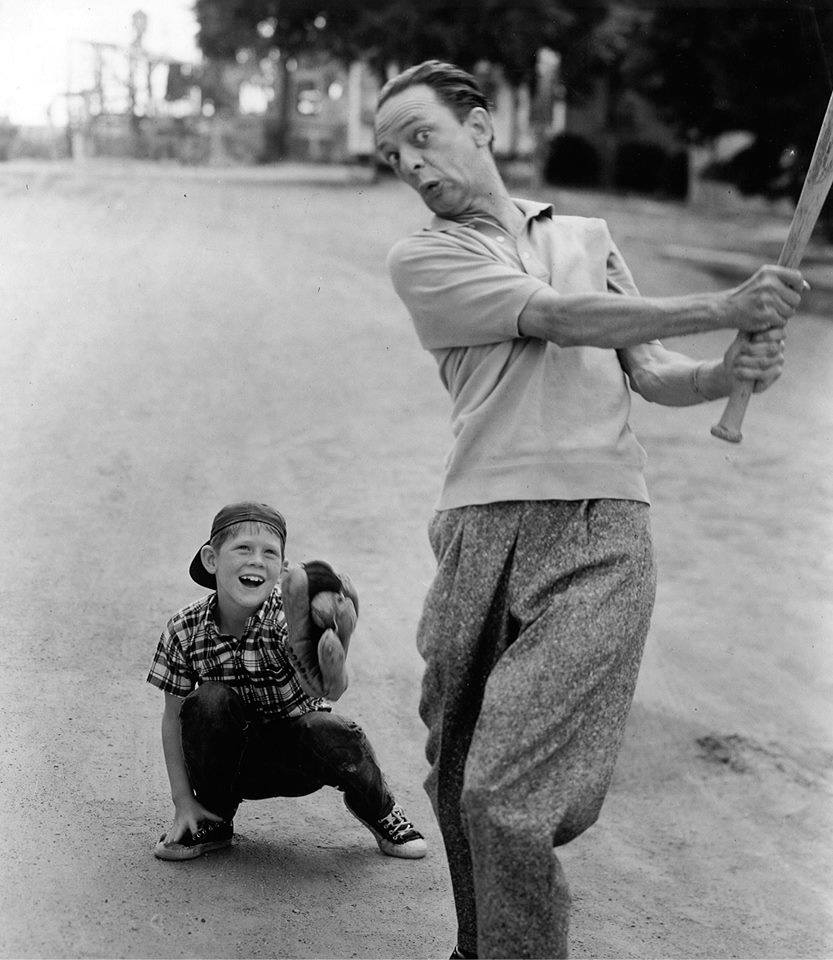
Introduction: More Than Just a Whistle and a Smile
When we think of The Andy Griffith Show, we usually picture a fishing pole, a small-town sheriff, and the slow pace of Mayberry. But hidden between the jokes and gentle storytelling are powerful lessons — especially about baseball and sports. Yep, that’s right. This old black-and-white show can still teach today’s players, coaches, and fans a thing or two about character, teamwork, and competition.
Let’s grab our gloves and step up to the plate. We’re about to dive deep into how Mayberry’s favorite sheriff pitched timeless truths about life through America’s favorite pastime.
The Classic Episode That Started It All — “Opie and the Baseball Game”
Setting the Scene in Mayberry
In this beloved episode, Opie Taylor is caught between loyalty to his father and loyalty to his team. He’s expected to play in a big baseball game but also asked to attend his father’s choir concert. The dilemma? Both are scheduled at the same time.
The Conflict Mirrors Real Life
Every kid (and parent) who’s juggled sports and other responsibilities can relate. This episode nailed the struggle: Do you let your team down or disappoint your family? It’s a real moral squeeze — and Andy’s calm, patient approach offers an unforgettable blueprint.
Sportsmanship First — Always
Andy’s Message: Winning Isn’t Everything
One of the show’s standout lessons? That character counts more than trophies. Andy doesn’t push Opie to win or be the best — he encourages him to be good. In sports today, that feels rare. We see coaches yelling on sidelines, and parents measuring self-worth by their kid’s batting average. Andy reminds us: The way you play is what matters.
Understanding Teamwork and Responsibility
“You Don’t Just Play For Yourself”
Throughout the show, we see moments where Andy (and even Barney) help teach Opie what it means to be part of a team. Whether he’s missing practice, sulking after a loss, or showing off after a win, Andy guides him to see that his actions impact others.
Teamwork isn’t just about passing the ball or hitting the ball — it’s about showing up for people who count on you.
Winning With Grace, Losing With Dignity
Mayberry’s Quiet Code of Honor
In a world where kids get trophies just for showing up, the show took a different approach. It taught that losing isn’t failure — it’s part of the game. What mattered was how you handled it. Andy didn’t coddle Opie when he lost, nor did he overly praise him when he won.
This calm acceptance of outcomes taught resilience — a trait every athlete needs.

The Power of a Good Coach (or Sheriff)
Andy Played the Role of Mentor Without Ever Yelling
Have you noticed Andy never screamed from the stands? He never undermined the coach or blamed umpires. Instead, he listened, guided, and modeled behavior worth copying. Coaches today could take notes.
A great coach teaches more than skills — they teach life through sports.
Emotional Intelligence on the Field
Reading the Room — or Dugout
Andy always knew what Opie wasn’t saying. He could read disappointment, pressure, and fear — even when words failed. That emotional sensitivity is something modern sports often overlook.
We praise physical ability but forget the mental game. Mayberry didn’t.
Why Character Development Mattered More Than Athleticism
The Long Game — Building Men, Not Just Players
Opie didn’t have to be the best on the field — and Andy never made him feel he had to. Instead, the focus was on who he was becoming. That’s a powerful lesson for parents and coaches chasing scholarships and trophies.
Good men come from good values. And The Andy Griffith Show made that its MVP principle.
Teaching Accountability Without Shame
When Opie Let Someone Down
In one episode, Opie hides his mistake — then feels the weight of guilt. Andy doesn’t explode. He calmly helps Opie own up and make things right. That blend of discipline and dignity? Priceless.
Sports provide the perfect stage for these lessons, and Mayberry nailed the delivery.
Encouraging Passion — Not Pressure
Letting Kids Love the Game Naturally
Andy never forced Opie into baseball. When Opie showed interest, Andy encouraged it. But when pressure crept in, he dialed things back.
Letting kids fall in love with the sport — instead of making it a job — is something today’s sports culture often forgets.
Balancing Fun and Structure
Mayberry’s Ballgames Had Rules — and Joy
There were rules. But there was also laughter, teasing, and community spirit. The fun never got lost in the formality.
Modern leagues can become too rigid. The Andy Griffith Show reminds us that the joy of the game is what keeps kids playing.
Handling Peer Pressure with Integrity
Opie Didn’t Always Make the Right Call — But He Learned
We’ve all seen it: a kid wants to quit, lash out, or copy bad behavior. The show shows Opie walking those roads — and Andy gently redirecting him.
Peer pressure exists on the diamond too. Mayberry gave us the tools to fight it.
Lessons for Today’s Parents
Be Present, Not Controlling
Andy showed up. But he didn’t hover. He offered advice, not ultimatums. He prioritized being a dad, not a sports agent.
That’s gold for today’s over-involved sports parents.
When Barney Tried Coaching
Comedy Meets Chaos — But Still a Lesson
Let’s not forget the hilarious episodes where Barney tries to coach or participate. While it’s mostly comic relief, there’s still wisdom underneath: Enthusiasm is great, but knowledge and patience matter, too.
Even Barney’s blunders become teachable moments.
How Mayberry’s Simplicity Highlights Today’s Sports Problems
Less Equipment, More Heart
No fancy uniforms, no travel leagues, no private coaching — just a bunch of kids playing ball. That simplicity stripped away the noise and focused on what really mattered.
Maybe sports today need a little less gear and a little more Mayberry.
Rewatching With New Eyes
What You Missed As a Kid Watching With Your Parents
When you watch The Andy Griffith Show again as an adult — especially those baseball-centered episodes — you realize how layered it was. It wasn’t just a sitcom. It was a playbook for growing up right.
Conclusion: Mayberry’s Playbook Still Wins Today
You don’t need a scoreboard to measure the worth of an athlete — just like you don’t need a championship ring to prove good parenting or coaching. The Andy Griffith Show captured the essence of what makes sports truly great: community, character, and connection.
So the next time you’re lacing up your kid’s cleats or yelling from the bleachers, ask yourself — what would Andy do?
FAQs
1. What episode of The Andy Griffith Show features baseball?
The episode “Opie and the Baseball Game” from Season 3 is one of the most memorable baseball-themed stories in the series.
2. Did Ron Howard actually play baseball in real life?
Ron Howard (Opie) has mentioned enjoying sports as a kid but didn’t pursue baseball professionally. His character’s love for the game was purely scripted.
3. What lessons does The Andy Griffith Show teach about coaching?
It emphasizes patience, character over competition, emotional intelligence, and the importance of letting kids enjoy the game without pressure.
4. How does The Andy Griffith Show handle losing in sports?
The show teaches that losing is part of life and focuses on dignity, sportsmanship, and learning from the experience rather than shame or blame.
5. Can modern parents and coaches benefit from watching the show?
Absolutely. The show offers timeless parenting and coaching lessons, especially when it comes to balancing support with independence and prioritizing values over victories.